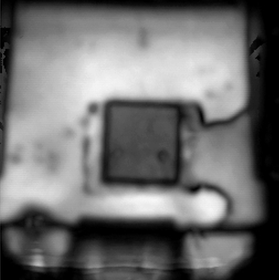We have added a case study of random integration analysis using the RAISING method!
We would like to introduce a case study of our random integration analysis service using the RAIS method. We performed the RAIS method on T-DNA taglines inserted into Arabidopsis thaliana using the Agrobacterium method, as well as on mouse cultured cells with retrovirus vectors inserted. We confirmed the insertion site sequences using Sanger sequencing and mapped the decoded sequences obtained from next-generation sequencing analysis to the genome sequence. As a result, it was confirmed that this method is effective for determining insertion sites in animal cultured cells as well as in plant cells. 【Random Integration Analysis Service using the RAIS Method】 ■ Sanger Sequencing Plan ■ Next-Generation Sequencing (NGS) Plan * For more details, please refer to the PDF document or feel free to contact us. * For case studies, please refer to the URL below.
Inquire About This Product
basic information
【Process of Request】 (1) Sample preparation (2) Sample shipment (3) Analysis order (4) Quality check of the sample (5) Primer design (6) Sample preparation (7) Sequencing (8) Data delivery *For more details, please refer to the PDF document or feel free to contact us.
Price range
Delivery Time
Applications/Examples of results
For more details, please refer to the PDF document or feel free to contact us.
catalog(3)
Download All CatalogsNews about this product(1)
Company information
In recent years, advancements in molecular biology have led to remarkable progress in research such as the determination of the complete genome sequences of organisms and subsequent gene function analysis. Along with these technological advancements, molecular biological techniques such as nucleotide sequence analysis, real-time PCR, and DNA chips have become widely utilized in the field of food analysis. Since its establishment in 2001, Fasmak Co., Ltd. has been developing technologies for the "Japanese Standard Analysis Method" for genetically modified foods and food allergens in collaboration with related agencies of the Ministry of Agriculture, Forestry and Fisheries and the Ministry of Health, Labour and Welfare. The developed testing technologies are provided not only in Japan but also in the United States, China, and other countries. Additionally, Fasmak has been actively engaged in international standardization activities for "food inspection methods using molecular biological techniques" since its establishment, and its technical capabilities are internationally recognized. Furthermore, in partnership with Eurofins Scientific, one of the world's largest testing companies, Fasmak is advancing the introduction of the high technical capabilities possessed by the Eurofins Group. Moving forward, Fasmak will continue to provide world-class new testing technologies to everyone.








![[Case Study] A programming novice in the general affairs department automates their own tasks!](https://image.mono.ipros.com/public/product/image/304/2000612283/IPROS62952880400000859527.png?w=280&h=280)






